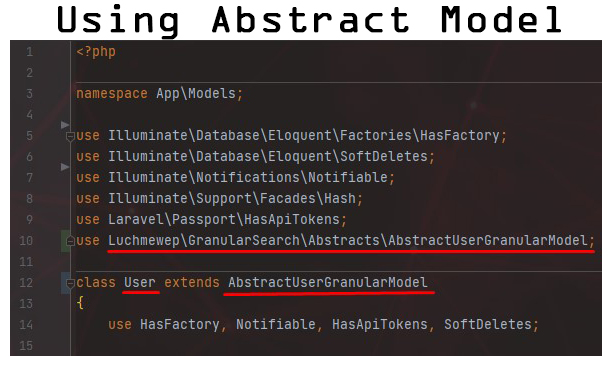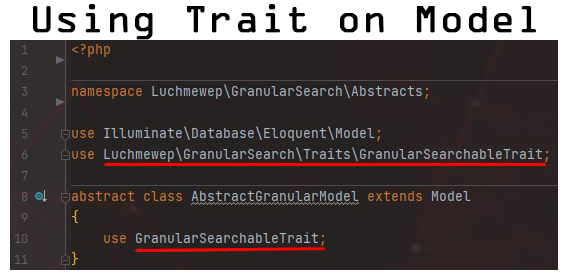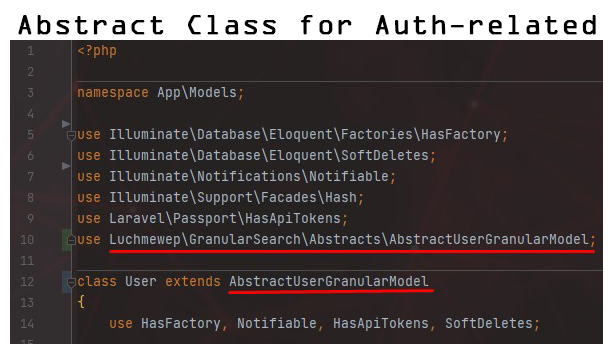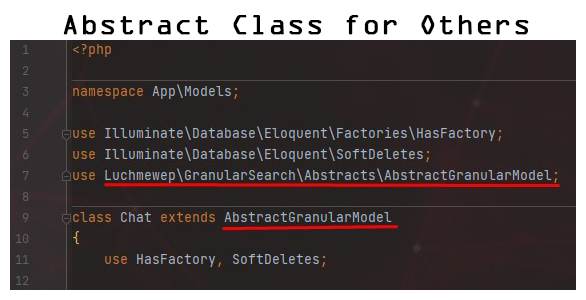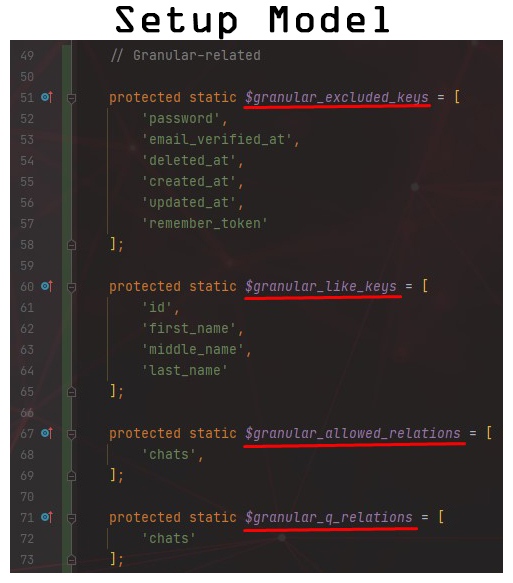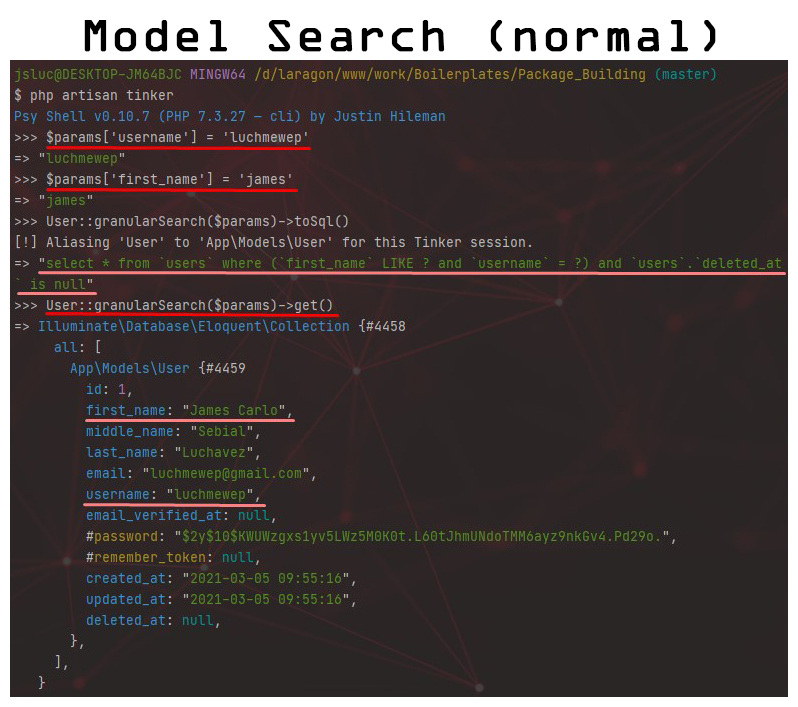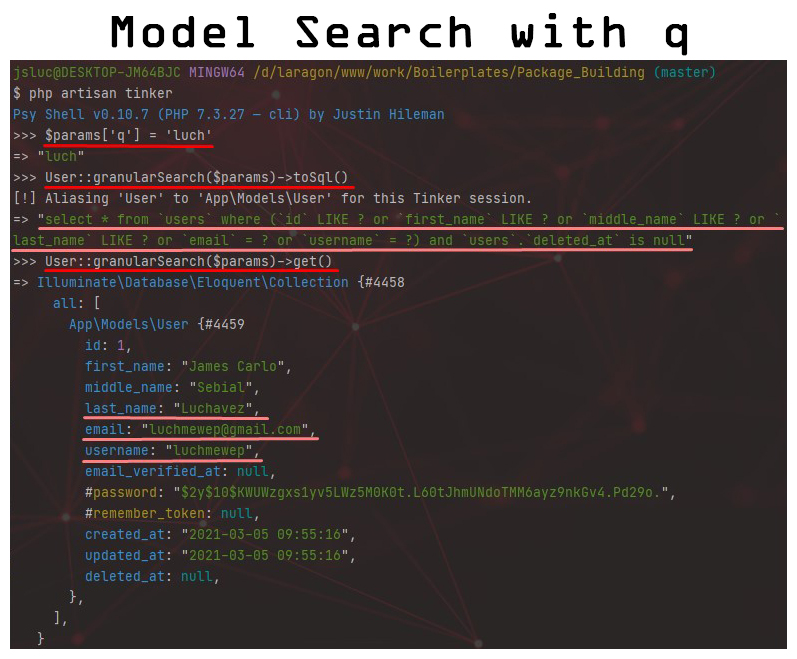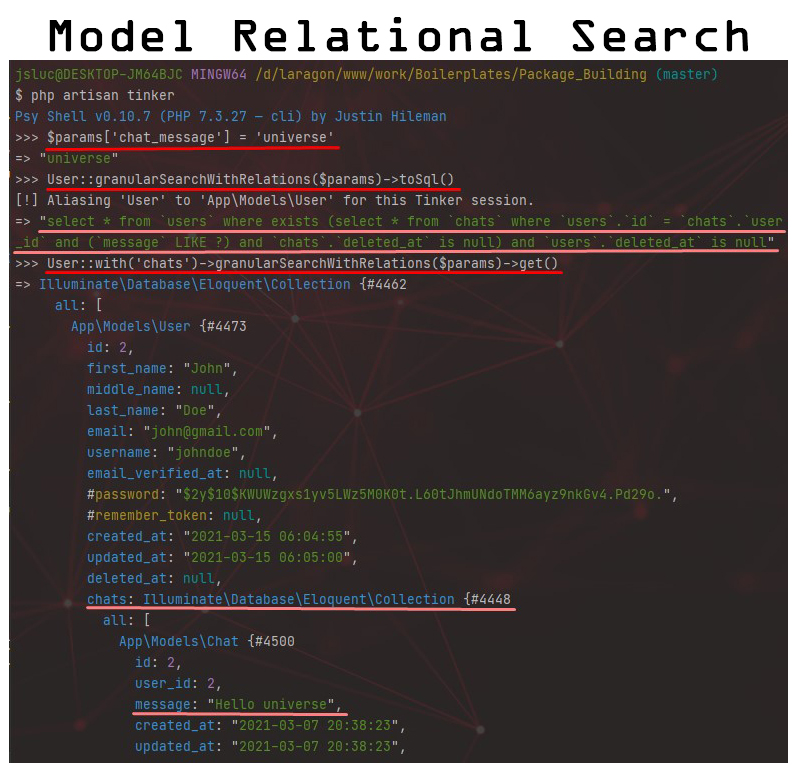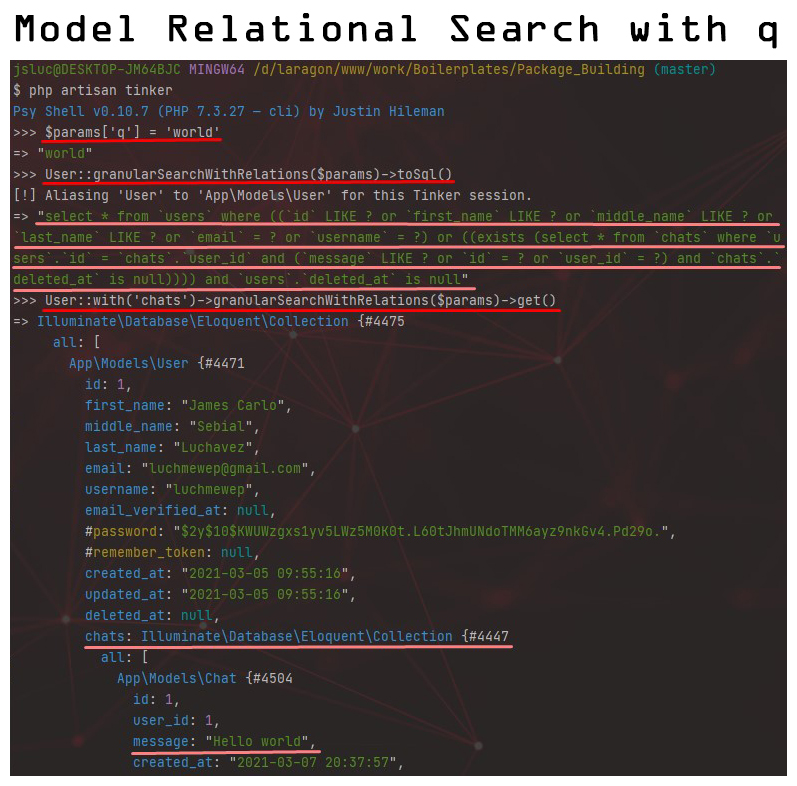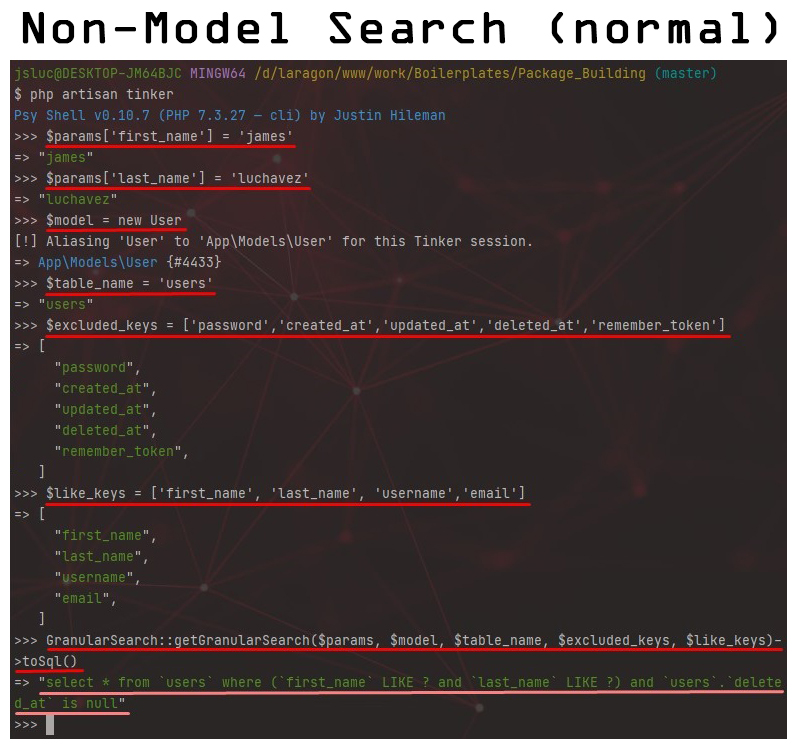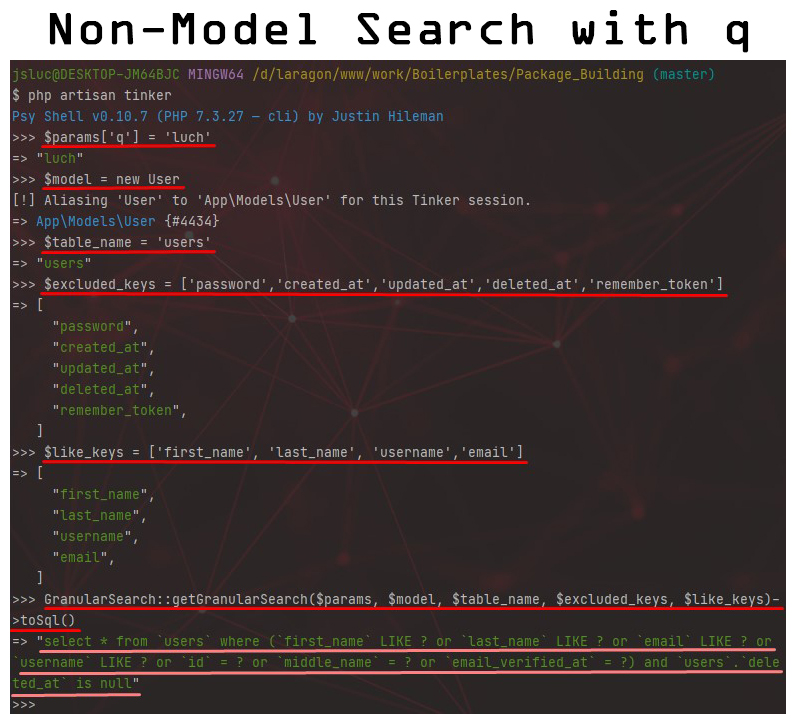Granular Search is an Eloquent model utility for implementing searching, filtering, and sorting with fewer lines of code.
Via Composer
$ composer require luchmewep/granular-searchTo use this package, you have two options. You can either implement it on your Eloquent models, or you can just use the main method of this package which is the getGranularSearch (see GranularSearchTrait).
However, to fully utilize this package, the preferred way would be to implement the prepared Traits and Abstract Models. If still in doubt, you can just use the non-model intrusive way which is using the GranularSearch class itself.
There are two (2) ways to implement Granular Search on Eloquent models:
- By extending the
AbstractGranularModelorAbstractGranularUserModelfor User-based models. (Highly Suggested)
- By using the
GranularSearchableTraiton your Eloquent models.
Currently, there are two (2) models to choose from. For models that are unrelated to authentication, you can just use the AbstractGranularModel. As for authentication-related ones, using AbstractGranularUserModel is advised.
These two abstract classes are not really hard to understand since they just use the GranularSearchTrait and GranularSearchableTrait. They are just prepared beforehand to minimize trait-related bugs.
Once extended, you should set up these protected static fields.
// Model fields to be excluded from filtering
protected static $granular_excluded_keys = [];
// Model fields to use LIKE instead instead of equal
protected static $granular_like_keys = [];
// Relations to consider for filtering/searching
protected static $granular_allowed_relations = [];
// Relations to include on 'q' search (must be a subset of allowed relations array)
protected static $granular_q_relations = [];- Normal Search / Filter
- Filtering using model's own fields
- Filtering using
qas parameter
- Relational Search / Filter
- Filtering through
relationsusing other model's prepended fields
- Filtering through
relationsusingqparameter
If you are not prepared to try it out on your current Eloquent models, you might want to test it out first using the GranularSearch class itself. Since the getGranularSearch is a static method, we don't need to instantiate the GranularSearch class. Here are the parameters for the static method:
/**
* Filter the model collection using the contents of the $request variable.
*
* @param Request|array $request Contains all the information regarding the HTTP request
* @param Model|Builder $model Model or query builder that will be subjected to searching/filtering
* @param string $table_name Database table name associated with the $model
* @param array $excluded_keys Request keys or table column names to be excluded from $request
* @param array $like_keys Request keys or table column names to be search with LIKE
* @param string $prepend_key
* @param bool $ignore_q
* @return Model|Builder
*/
- Filtering using model's own fields
- Filtering using
qas parameter
Please see the changelog for more information on what has changed recently.
$ composer testPlease see contributing.md for details and a todolist.
If you discover any security related issues, please email author email instead of using the issue tracker.
license. Please see the license file for more information.


